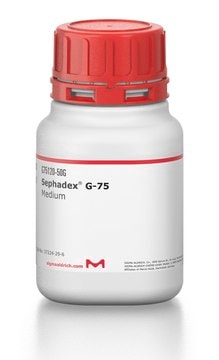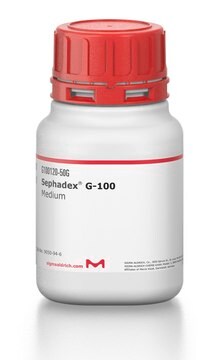Recommended Products
biological source
bovine
Quality Level
form
powder
technique(s)
tissue culture: suitable
storage temp.
−20°C
Application
Brain acetone powder bovine may be used in studies tissue-specific genes leading to the expression of proteins important for the analysis of immunoreactivity, disease pathogenesis and drug targeting.
Has been used as a crude source of calmodulin.
Storage Class Code
11 - Combustible Solids
WGK
WGK 3
Flash Point(F)
Not applicable
Flash Point(C)
Not applicable
Personal Protective Equipment
dust mask type N95 (US), Eyeshields, Gloves
Choose from one of the most recent versions:
Certificates of Analysis (COA)
Lot/Batch Number
Don't see the Right Version?
If you require a particular version, you can look up a specific certificate by the Lot or Batch number.
Already Own This Product?
Find documentation for the products that you have recently purchased in the Document Library.
T B Ng
The International journal of biochemistry, 24(4), 653-656 (1992-04-01)
1. Bovine cerebral hemispheres were extracted with an acidic medium (acetone-water-hydrochloric acid mixture, 40:5:1 by volume, pH 1.8). The precipitate which formed upon addition of a copious volume of cold acetone to the extract was designated acid acetone powder (AAP).
W M Pardridge et al.
Molecular and cellular neurosciences, 1(1), 20-28 (1990-08-01)
Tissue-specific gene expression within the brain capillary endothelium, which makes up the blood-brain barrier (BBB) in vivo, may lead to the production of brain capillary-specific proteins (BSPs). BSPs were defined in the present study by immunocytochemistry and Western blotting using
Affinity chromatographic isolation of calmodulin from bovine-brain acetone powder.
C R Caldwell et al.
Analytical biochemistry, 116(2), 325-330 (1981-09-15)
Eric V Shusta et al.
Molecular & cellular proteomics : MCP, 1(1), 75-82 (2002-07-04)
The cloning of genes expressing proteins that are differentially expressed in the organ microvasculature has the potential to address a variety of problems ranging from the analysis of disease pathogenesis to drug targeting for particular tissues. This study describes a
Our team of scientists has experience in all areas of research including Life Science, Material Science, Chemical Synthesis, Chromatography, Analytical and many others.
Contact Technical Service







